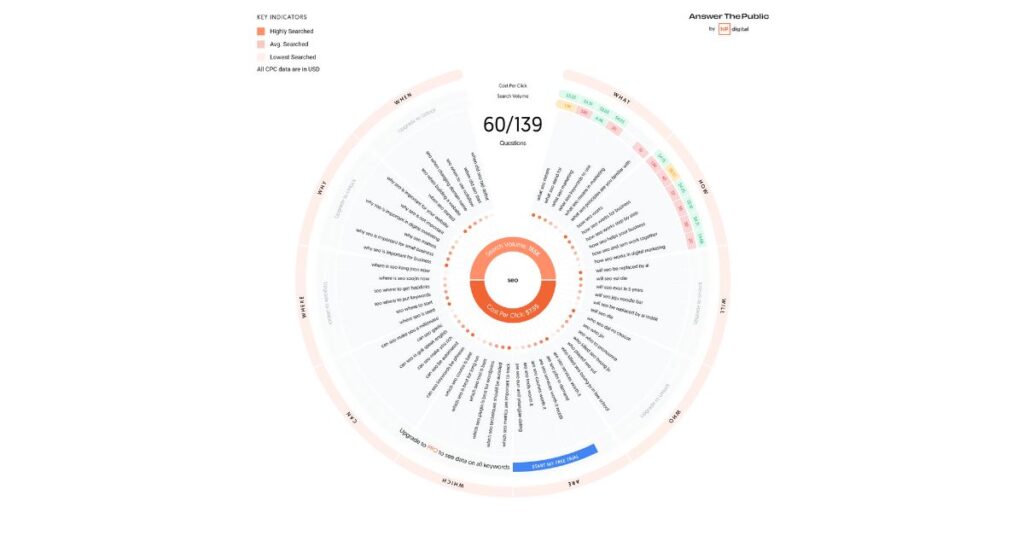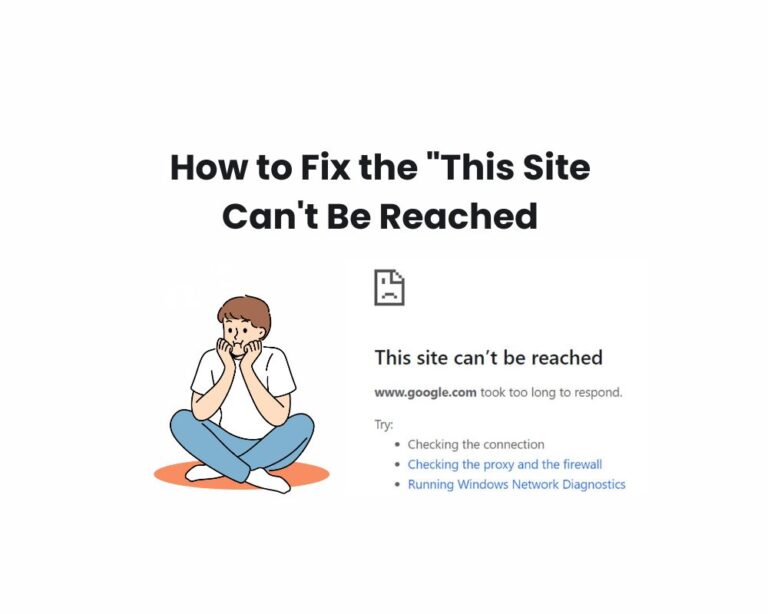Best Free Keyword Research Tool for SEO in 2026
A keyword research tool for SEO helps identify high-traffic search terms and relevant keywords to optimize your content for better ranking in SEO results. In search engine optimization (SEO), keywords play a crucial role in ranking your website higher in search results.
Whether you’re a blogger, business owner, or digital marketer, finding the right keywords is essential to drive organic traffic to your website. With numerous tools available, many of which are paid, finding a free, reliable keyword research tool can be a game-changer.
In 2024, several free keyword research tools offer powerful insights without the need for a subscription. Let’s explore the best free keyword research tools you can use this year.
Before reading this blog post see our previous blog post about The Best Blog Sites for Building Your Online Presence in 2026. It helps you establish your online presence.
Why Keyword Research Matters for SEO
Keyword research is essential for successful SEO for several reasons:
- Understand Audience Intent: It helps you discover what your target audience is searching for, allowing you to create relevant content that meets their needs.
- Drive Organic Traffic: Targeting the right keywords can significantly increase the amount of organic traffic to your website, attracting more visitors.
- Improve Search Rankings: Optimizing your content around specific keywords enhances your chances of ranking higher in search engine results.
- Competitive Advantage: Analyzing keywords can reveal opportunities and gaps in your competitors’ strategies, allowing you to outperform them.
- Content Strategy: It guides your content creation, ensuring you cover topics that resonate with your audience and align with their search queries.
Top Free Keyword Research Tools for SEO in 2026
Google Keyword Planner

Google Keyword Planner remains one of the top choices for keyword research in 2026. As a free tool, it is often recommended for beginners because of its reliability and integration with Google Ads. Even though it’s designed for advertisers, it’s a great resource for finding search volume data and keyword suggestions.
Key Features:
- Search Volume Data: Offers insights into keyword search volumes, competition levels, and forecasts.
- Keyword Suggestions: Generates related keyword ideas based on your seed keywords.
- Ad Integration: Links with Google Ads to help plan PPC campaigns.
Pros:
- Completely free.
- Reliable data directly from Google.
- Easy to use with access to local and global keyword data.
Cons:
- Data accuracy is sometimes generalized.
- Requires a Google Ads account.
Who Should Use It?
If you’re new to SEO and looking for a solid tool that gives you reliable keyword data for free, Google Keyword Planner is a great place to start.
Ubersuggest

Ubersuggest, created by Neil Patel, has grown into one of the most popular free SEO tools. With a user-friendly interface and extensive keyword research capabilities, Ubersuggest offers everything from keyword volume to competition analysis and even domain-level SEO audits.
Key Features:
- Keyword Suggestions: Provides keyword ideas along with search volume, SEO difficulty, and paid difficulty scores.
- Content Ideas: Find content ideas based on popular keywords.
- Competitive Analysis: Analyze your competitors’ keywords and strategies.
Pros:
- Comprehensive data on keywords, including difficulty levels.
- User-friendly interface.
- Also offers domain analytics and backlink data.
Cons:
- Limited daily searches in the free version.
- Some advanced features require a paid subscription.
Who Should Use It?
Small business owners and freelance marketers who need a versatile tool with a balance of SEO and content marketing insights will find Ubersuggest valuable.
AnswerThePublic

AnswerThePublic is a unique keyword tool that focuses on question-based queries, making it perfect for finding long-tail keywords and content ideas. This tool visualizes search queries and generates a wealth of question-based keywords people are searching for.
Key Features:
- Visual Keyword Maps: Offers a visual representation of popular search queries.
- Question-Based Keywords: Focuses on who, what, when, where, and why queries.
- Keyword Categories: Organizes keywords into categories for better analysis.
Pros:
- Great for discovering content ideas.
- Easy to use with a simple interface.
- Highlights the questions people are asking.
Cons:
- Limited searches in the free version.
- Search volume data is not as detailed as other tools.
Who Should Use It?
Content marketers and bloggers looking to uncover new angles for blog posts or answer-based content will find AnswerThePublic a must-have tool.
KeywordTool.io

KeywordTool.io is another free option that focuses on generating keyword suggestions from Google, YouTube, Amazon, and other platforms. Its strength lies in identifying long-tail keywords, making it an excellent choice for users targeting niche search terms.
Key Features:
- Keyword Suggestions: Generates keyword ideas from various platforms, including Google, Bing, Amazon, and YouTube.
- Long-Tail Keywords: Focuses on long-tail keyword opportunities.
- Multiple Languages: Supports keyword research in various languages.
Pros:
- Extensive long-tail keyword data.
- User-friendly interface.
- Supports multiple platforms and languages.
Cons:
- No search volume or competition data in the free version.
- Advanced features require a premium subscription.
Who Should Use It?
If you’re looking to expand your keyword research to platforms like Amazon or YouTube and want to target niche or long-tail queries, KeywordTool.io is a great option.
Moz Keyword Explorer

Moz Keyword Explorer is a free tool offered by Moz, a well-known name in the SEO industry. Though it offers a limited number of free searches per month, it provides valuable data such as search volume, difficulty score, and opportunity metrics.
Key Features:
- Keyword Suggestions: Offers keyword ideas with search volume, difficulty, and organic CTR data.
- SERP Analysis: Analyze search engine results pages for your keywords.
- Priority Score: Provides a unique metric combining volume, difficulty, and opportunity.
Pros:
- Comprehensive keyword data, including difficulty and CTR.
- High accuracy with reliable data.
- Provides up to 10 free searches per month.
Cons:
- Limited searches in the free version.
- Requires a paid subscription for more detailed reports.
Who Should Use It?
Digital marketers and agencies looking for in-depth keyword analysis can benefit from using Moz Keyword Explorer, especially if they are already familiar with other Moz tools.
SEMRush (Free Version)

Although SEMRush is widely known as a paid SEO tool, it offers a free version with limited access to its powerful features. In the free plan, users can perform keyword research, analyze competitors, and view a limited number of reports per day.
Key Features
- Keyword Overview: Provides search volume, difficulty, and competition data.
- Keyword Magic Tool: Discover keyword ideas and clusters for specific topics.
- Competitor Analysis: This allows you to see the keywords your competitors are ranking for.
Pros:
- High-quality data on search volume and competition.
- Access to competitor keyword strategies.
- Great for small-scale research projects.
Cons:
- The free version has limited access to reports and searches.
- More suited for users with some SEO experience.
Who Should Use It?
Freelancers and small business owners who want a taste of premium SEO tools without the cost will find SEMRush’s free version helpful.
How to Choose the Best Free Keyword Research Tool for SEO
Each of the tools above offers unique features that can help with your SEO strategy. Here are a few factors to consider when choosing the right keyword research tool for SEO for you:
- Ease of use: If you’re a beginner, opt for user-friendly tools like Ubersuggest or Keyword Surfer.
- Search platform focus: If you need keyword ideas for platforms beyond Google (e.g., YouTube or Amazon), consider Soovle.
- Depth of data: For detailed search volume and competition insights, Google Keyword Planner or Ubersuggest is your best bet.
- Content ideas: If you need content ideas along with keywords, tools like AnswerThePublic can help you understand user intent better.
Conclusions
Choosing the right free keyword research tool for SEO in 2026 depends on your specific needs, budget, and goals. For beginners, Google Keyword Planner and Ubersuggest provide reliable keyword data without overwhelming features.
For content creators focused on answering user questions, AnswerThePublic offers an intuitive way to generate fresh ideas. If you’re interested in long-tail keywords or expanding your reach to platforms like YouTube or Amazon, KeywordTool.io is an excellent choice.
In the end, these tools offer a solid starting point for improving your SEO game without requiring a major investment. Explore them, experiment, and find the one that best fits your strategy!







